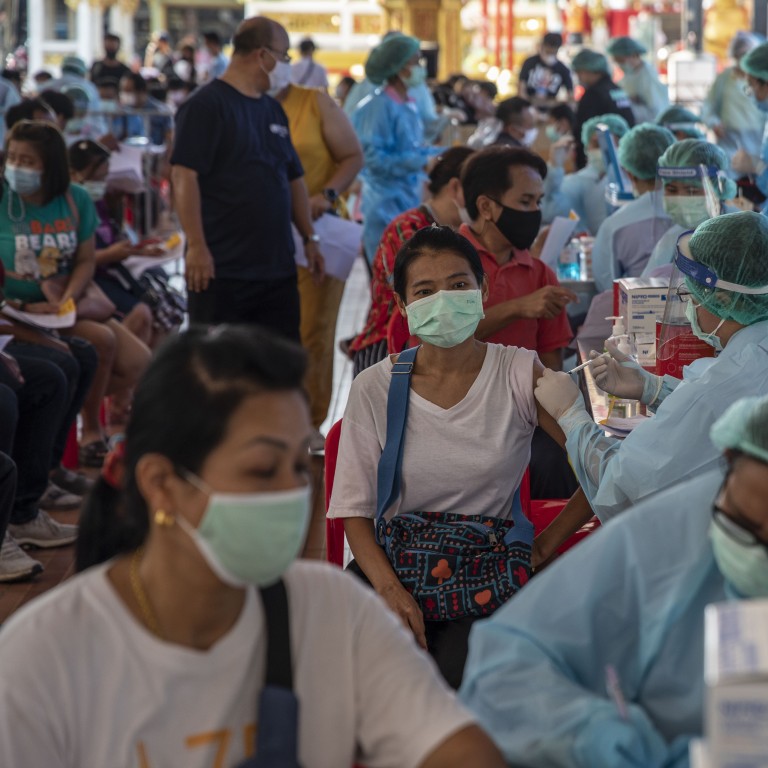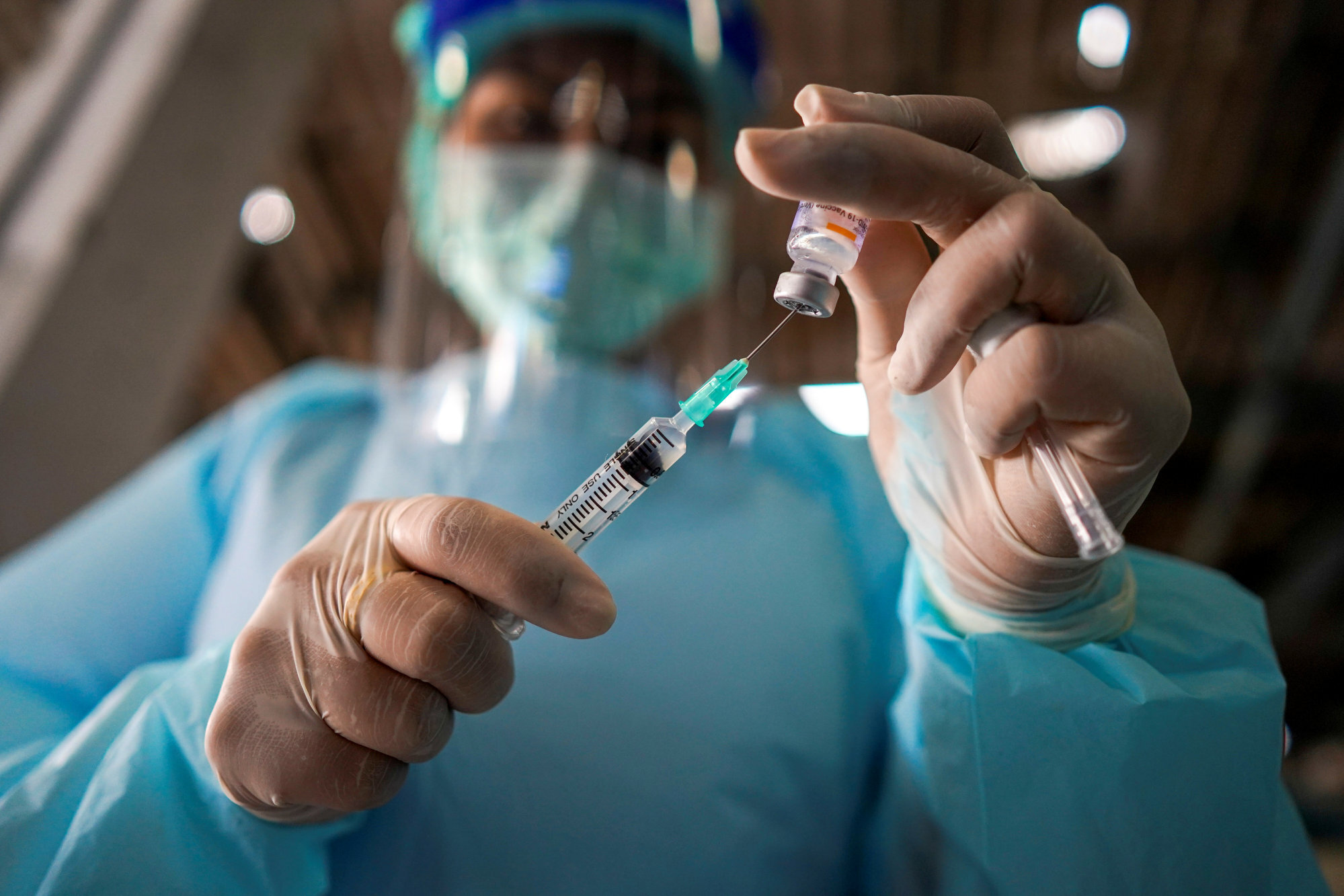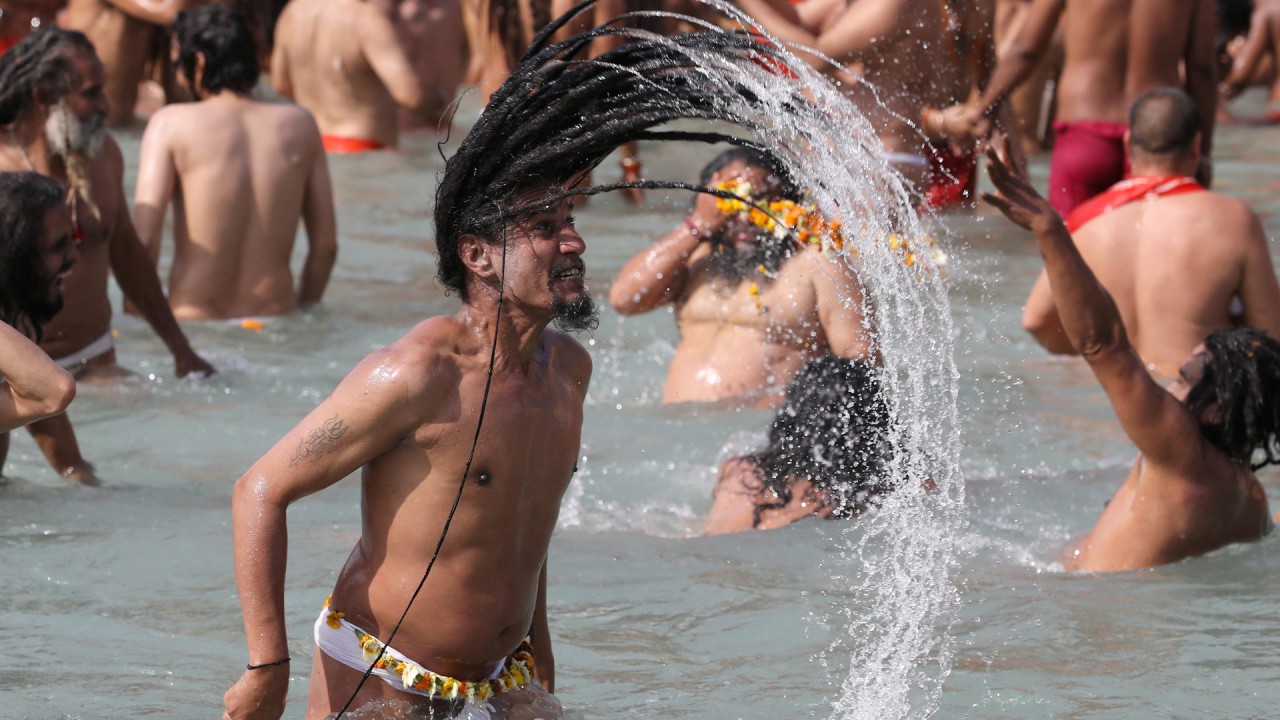
Coronavirus: Asia speeds up AstraZeneca vaccine roll-out even as trust sinks in Europe; second wave grips India
- Many Asian countries, including Australia, South Korea and Thailand, heavily rely on the AstraZeneca jab to end the pandemic
- Some hospitals in India’s Maharashtra state have begun to run short of beds, while New Zealand delayed a travel bubble with Australia
After briefly halting its use, many European countries have resumed using the shot in their inoculation programmes after a regional regulator said it was safe, while several country leaders are also taking the vaccine to boost confidence.
The AstraZeneca shot was among the first and cheapest of the Covid-19 vaccines to be developed and launched at volume and is set to be the mainstay of vaccination programmes in much of the developing world.
But its brief suspension raised concerns that a slowdown in vaccination roll-outs could hurt the global fight against the pandemic, as coronavirus cases surge in some countries, overwhelming health care systems and hurting economies.
“I have just finished getting the [AstraZeneca] injection, there is no pain at the injection site, and there is no soreness of the body,” Taiwan Premier Su Tseng-chang told reporters as the island launched its inoculation campaign on Monday.
South Korean President Moon Jae-in, 68, plans to get the shot on Tuesday after the government said it could be used on older people. British Prime Minister Boris Johnson received his first dose of the AstraZeneca Covid-19 vaccine on Friday, saying he “did not feel a thing.”
The European Medicines Agency regulator said on Thursday the vaccine is effective and not linked with a rise in the overall risk of blood clots.
Yet a survey released on Monday showed that people in seven European countries were more likely to see the vaccine as unsafe than as safe. Many Asian countries heavily rely on the AstraZeneca vaccine to end the pandemic, as the shot is being used in inoculation programmes in Australia, South Korea, the Philippines, Vietnam, Thailand, and India.
Australia, which has inoculated just 1 per cent of its population so far, is also accelerating vaccination after the country’s pharmaceutical regulator approved on Sunday the local manufacturing of the AstraZeneca vaccine by CSL. Within 12 weeks, CSL is expected to produce 1 million doses of the vaccine each week.
Singapore’s health authority said on Monday it was in talks with AstraZeneca about its coronavirus vaccine and had sought more information from Sinovac Biotech before using the Chinese jab for its immunisation drive.
India in grip of second wave
India reported its most Covid-19 cases and deaths in months on Monday, on the first anniversary of the start of a chaotic nationwide lockdown that left many people jobless and shrank the economy.
Authorities reintroduced some curbs to slow the spread of the virus, especially in the western state of Maharashtra, which accounted for nearly two-thirds of the 46,951 new infections and most the 212 deaths. Some hospitals in the country’s worst-affected state have begun to run short of beds.
With the biggest rise in cases since early November, India’s total has surpassed 11.65 million, the highest in the world after the United States and Brazil. The increase in deaths was the largest since early January, and took the total to 159,967. In some parts of India, most people still go out without masks and flout advice on social distancing, including politicians campaigning in four states where elections will begin later this month.
The health ministry has also warned that a huge gathering of devotees for a Hindu festival could lead to a spike in cases as people from all over the country flock to the banks of the Ganges river in the holy northern town of Haridwar.
Local authorities have said they expect 150 million visitors at the weeks-long Mahakumbh that began this month and peaks in April. The festival is held only once every 12 years, and many Hindus believe bathing in the river during this period absolves people of sins.
The surge in cases has also brought into focus India’s low rate of immunisation relative to population, despite being the world’s biggest maker of vaccines. India has administered more than 44 million doses since starting its vaccination campaign in mid-January, but wants to cover 300 million – a fifth of its 1.35 billion population – by August.
India has donated or sold more than 60 million vaccine doses to 76 countries, saying some shipments are necessary to meet contractual obligations. As vaccine demand rises at home, top vaccine manufacturer the Serum Institute of India (SII) has delayed further shipments of the AstraZeneca shot to the UK, Brazil, Saudi Arabia and Morocco.
Maharashtra has offered to make doses itself to ease the supply pressure on SII and vaccine developer Bharat Biotech, whose Covaxin shot is also being used in the country’s inoculation programme. The state reported 30,535 new coronavirus infections in the past 24 hours, forcing local authorities to reopen some quarantine centres. The facilities had been closed after the national daily caseload began to decline after peaking at nearly 100,000 cases a day in September.
Nearly a dozen other states, including Punjab, Madhya Pradesh and Karnataka have also seen a spike in cases in the past few weeks.
New Zealand-Australia travel bubble delayed
New Zealand’s Prime Minister Jacinda Ardern will announce within two weeks a date for quarantine-free travel with Australia, she said on Monday, despite mounting pressure from business to open borders with neighbouring countries.
The government hopes to announce a start date on April 6, Ardern told a news conference, adding that while opening borders with neighbours was a priority, several concerns needed to be resolved first.
“We know that many New Zealanders are nervous … they want us to proceed in the same vein as our overall Covid response, that’s with caution.” Ardern outlined the conditions needed to satisfy the cabinet, such as contact tracing measures and managed isolation facilities, before borders are opened to Australians.
Both countries have successfully contained the coronavirus within their borders, although Australia has suffered sporadic outbreaks. Most Australian states have opened borders to New Zealanders since last October, with a few short suspensions over small virus outbreaks in Auckland. But New Zealand has delayed returning the favour.
New Zealand’s opposition National Party has called for the immediate start of quarantine-free travel with Australia. “The last thing our struggling economy needs now is more announcements about future announcements,” party leader Judith Collins said in a statement.
“The prime minister should have given us the certainty of a start date today.”
A two-way travel arrangement was in New Zealand’s hands, Australian Prime Minister Scott Morrison said this month. But Ardern said opening borders without proper systems in place would lead to more lockdowns, putting even domestic tourism at risk.
Philippines becomes Southeast Asia hotspot
A surge of new coronavirus cases in the Philippines has pushed the nation’s seven-day moving average for infections to the highest in Southeast Asia, surpassing Indonesia for the first time since September.
The health ministry reported 8,019 new infections on Monday, the country’s highest single-day increase in Covid-19 cases.
Although Indonesia still has the most cases in the region, it has seen a steady decline in the pace of new infections since early February, while the Philippines has experienced a marked increase. As a result, Manila and nearby areas have been placed under tighter movement curbs for two weeks, reversing the reopening of businesses that had begun after last year’s record economic slump.

Human trials begin on Thai vaccine
Thailand started human trials on Monday of a domestically developed coronavirus vaccine and expects to deploy it next year, which its health minister said could give the country more freedom with its vaccine policy.
Thailand’s vaccination drive is targeting the inoculation of half of its adult population by the end of the year using 61 million doses of AstraZeneca’s vaccine, which will be locally produced from June.
The home-grown vaccine candidate is being developed by state drug maker, the Government Pharmaceutical Organization (GPO), with Mahidol University’s Tropical Medicine Department and an American non-profit and uses an inactivated virus to trigger immunity.
In Thailand, vaccine inequality fears grow as private hospitals eye profits
“The vaccine, produced by Thais for Thais, is expected to be used next year,” Piyasakol Sakolsatayadorn, chairman of the Mahidol University Council, told a news conference.
Thailand’s progress comes as countries including Japan and Taiwan speed up domestic vaccine development programmes amid tight global supply and concerns about new Covid-19 variants. Vietnam last week said its locally developed vaccine would be available by the fourth quarter of this year.
Mahidol University’s dean, Bangjong Mahaisavariya, said 460 volunteers would be accepted for the human trials, 210 of whom would be used in the first phase. Phase two is expected to begin in July, with results by year-end.
Another home-grown vaccine is being developed by Chulalongkorn University and is expected to start human trials soon.
Malaysia, Singapore consider vaccine certificates
Malaysia and Singapore are set to explore reciprocal vaccination certification as part of the post Covid-19 collaboration between the Southeast Asian neighbours.
The arrangement will be discussed when Singapore’s Foreign Minister Vivian Balakrishnan visits Malaysia for a two-day visit starting March 23, Malaysia’s foreign affairs minister said in a statement on Monday.
Reporting by Reuters, Bloomberg

